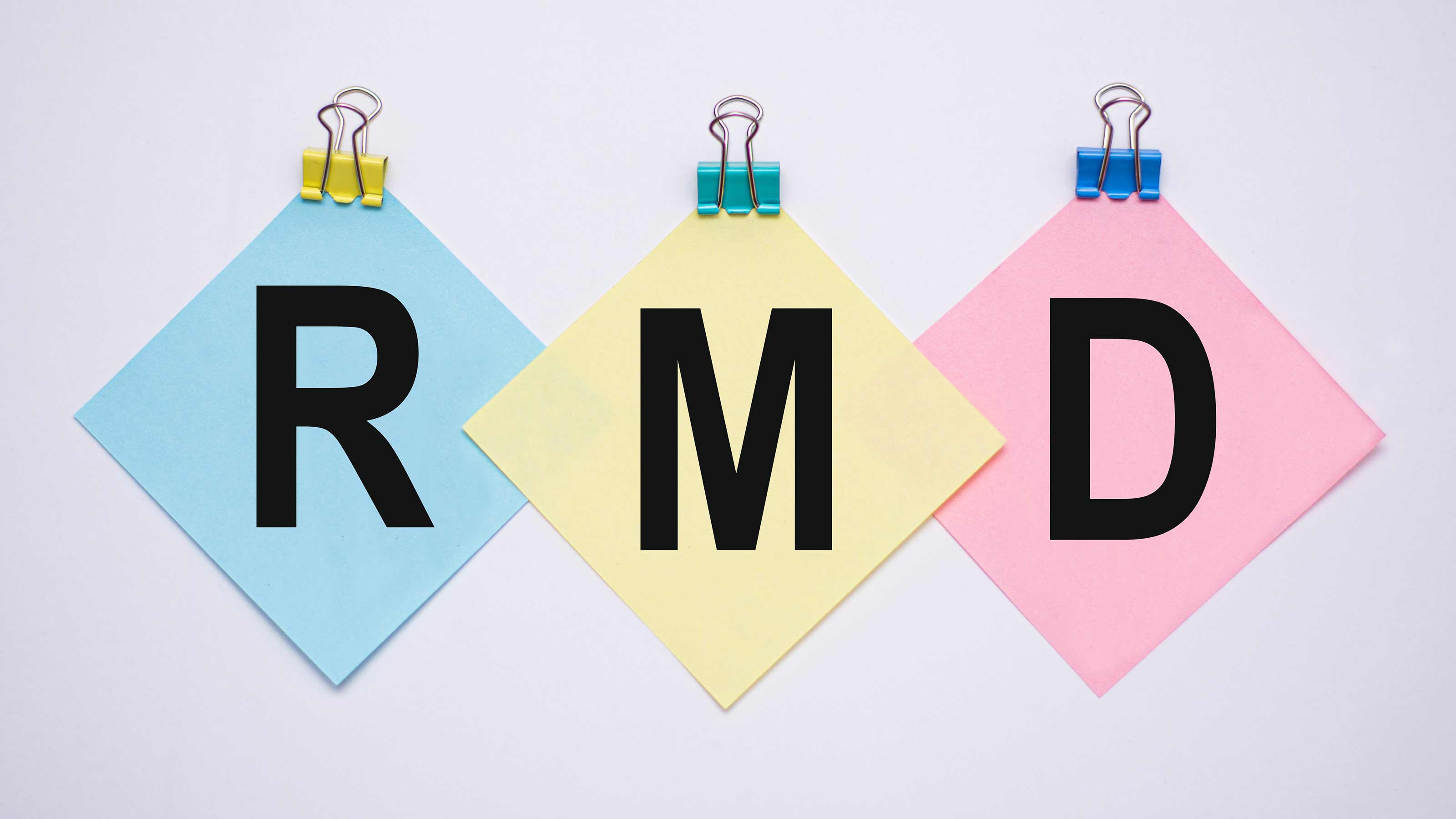Rethinking Retirement Income Strategies
When interest rates are this low, it might be time to revisit some of the old rules of thumbs about reducing the risk of outliving your money.


Profit and prosper with the best of Kiplinger's advice on investing, taxes, retirement, personal finance and much more. Delivered daily. Enter your email in the box and click Sign Me Up.
You are now subscribed
Your newsletter sign-up was successful
Want to add more newsletters?

Delivered daily
Kiplinger Today
Profit and prosper with the best of Kiplinger's advice on investing, taxes, retirement, personal finance and much more delivered daily. Smart money moves start here.

Sent five days a week
Kiplinger A Step Ahead
Get practical help to make better financial decisions in your everyday life, from spending to savings on top deals.

Delivered daily
Kiplinger Closing Bell
Get today's biggest financial and investing headlines delivered to your inbox every day the U.S. stock market is open.

Sent twice a week
Kiplinger Adviser Intel
Financial pros across the country share best practices and fresh tactics to preserve and grow your wealth.

Delivered weekly
Kiplinger Tax Tips
Trim your federal and state tax bills with practical tax-planning and tax-cutting strategies.

Sent twice a week
Kiplinger Retirement Tips
Your twice-a-week guide to planning and enjoying a financially secure and richly rewarding retirement

Sent bimonthly.
Kiplinger Adviser Angle
Insights for advisers, wealth managers and other financial professionals.

Sent twice a week
Kiplinger Investing Weekly
Your twice-a-week roundup of promising stocks, funds, companies and industries you should consider, ones you should avoid, and why.

Sent weekly for six weeks
Kiplinger Invest for Retirement
Your step-by-step six-part series on how to invest for retirement, from devising a successful strategy to exactly which investments to choose.
Our annual guide to making your nest egg last as long as you do is even more timely this year because yields from the safest place to keep your savings—the bank—are at rock-bottom. The average yield on one-year CDs is just 0.32%, according to Bankrate.com. Five-year CDs aren’t much better, at just 0.49%, on average.
If you’ve saved diligently, you can still convert your savings into a reliable retirement paycheck, writes senior editor Sandy Block in our cover story. But to reduce the risk of outliving your money, you may need to revisit some of the old rules of thumb. For example, with cash and fixed-income investments paying meager returns, retirees may have to boost their stake in stocks, forgoing the traditional mix of 60% stocks and 40% bonds and cash.
Relying on stocks for income can be scary for retirees, especially when volatility is running high. You can reduce the risk of investing in the stock market—and your anxiety—if you make sure you have enough cash flow to cover the basics for a couple of years. That way, when stocks fall, you can put withdrawals on pause until prices recover.
From just $107.88 $24.99 for Kiplinger Personal Finance
Become a smarter, better informed investor. Subscribe from just $107.88 $24.99, plus get up to 4 Special Issues

Sign up for Kiplinger’s Free Newsletters
Profit and prosper with the best of expert advice on investing, taxes, retirement, personal finance and more - straight to your e-mail.
Profit and prosper with the best of expert advice - straight to your e-mail.
One way to supplement your guaranteed income—typically anchored by Social Security and pension benefits—is with an annuity. Annuities come in many flavors. In our cover story, we focus on the single-premium immediate annuity—in exchange for a lump sum, an insurance company will provide you with a monthly payment for a specified number of years or the rest of your life. Today’s low interest rates reduce what you earn from an annuity, and that’s one of the reasons most planners advise their clients to cap their annuity investment at 25% to 30% of assets. Sandy covers a number of other strategies to make the most of annuities.
Cautious optimism. To check the pulse of Americans putting their own withdrawal plans in place, we asked a national sampling of respondents age 55 to 70—people both approaching retirement and fully retired—how confident they are that they’ll have enough money to last for their entire retirement. When we conducted the poll in June, the pandemic-sparked bear market was top of mind, and nearly two-thirds of respondents reported a decrease in their retirement investments.
Overall, they are optimistic, with a majority expressing confidence that they will be able to create a secure income stream in retirement. But there are also telling signs of worry: Half of respondents say they are less confident about living comfortably in retirement than they were before the pandemic. Women, people in their fifties and, not surprisingly, those with lower household net worth are the most pessimistic.
Kiplinger commissioned the poll in partnership with the Alliance for Lifetime Income. The Alliance, whose members consist of prominent insurers and financial firms, focuses on educating people about how protected income from annuities can make them more confident about living a secure retirement.
The economic uncertainty and market volatility created by the pandemic have led many preretirees to rethink their retirement plans. “We’re seeing a great retirement reset underway, in which Americans are more concerned than ever about having enough income to cover expenses in retirement,” says Jean Statler, CEO of the Alliance. People are looking for ways to shield their retirement plans, she adds, which protected income from annuities or pensions can provide.
A surprising number of respondents in our poll still receive, or will receive, a pension, although the average amount is a modest $2,500 per month. Even so, the majority say they are looking for more guaranteed income. And nearly half have either invested in an annuity or would be willing to in the future. (See more highlights from the poll.)
Profit and prosper with the best of Kiplinger's advice on investing, taxes, retirement, personal finance and much more. Delivered daily. Enter your email in the box and click Sign Me Up.

Mark was the editor of Kiplinger's Personal Finance magazine from July 2017 to June 2023. Prior to becoming editor, he was the Money and Living sections editor and, before that, the automotive writer. He has also been editor of Kiplinger.com as well as the magazine's managing editor, assistant managing editor and chief copy editor. Mark has also served as president of the Washington Automotive Press Association. In 1990 he was nominated for a National Magazine Award. Mark earned a B.A. from University of Virginia and an M.A. in Writing from Johns Hopkins University. Mark lives in Washington, D.C., with his wife, and they spend as much time as possible in their Glen Arbor, Mich., vacation home.
-
 How Much It Costs to Host a Super Bowl Party in 2026
How Much It Costs to Host a Super Bowl Party in 2026Hosting a Super Bowl party in 2026 could cost you. Here's a breakdown of food, drink and entertainment costs — plus ways to save.
-
 3 Reasons to Use a 5-Year CD As You Approach Retirement
3 Reasons to Use a 5-Year CD As You Approach RetirementA five-year CD can help you reach other milestones as you approach retirement.
-
 Your Adult Kids Are Doing Fine. Is It Time To Spend Some of Their Inheritance?
Your Adult Kids Are Doing Fine. Is It Time To Spend Some of Their Inheritance?If your kids are successful, do they need an inheritance? Ask yourself these four questions before passing down another dollar.
-
 10 Retirement Tax Plan Moves to Make Before December 31
10 Retirement Tax Plan Moves to Make Before December 31Retirement Taxes Proactively reviewing your health coverage, RMDs and IRAs can lower retirement taxes in 2025 and 2026. Here’s how.
-
 The Rubber Duck Rule of Retirement Tax Planning
The Rubber Duck Rule of Retirement Tax PlanningRetirement Taxes How can you identify gaps and hidden assumptions in your tax plan for retirement? The solution may be stranger than you think.
-
 What Does Medicare Not Cover? Eight Things You Should Know
What Does Medicare Not Cover? Eight Things You Should KnowMedicare Part A and Part B leave gaps in your healthcare coverage. But Medicare Advantage has problems, too.
-
 15 Reasons You'll Regret an RV in Retirement
15 Reasons You'll Regret an RV in RetirementMaking Your Money Last Here's why you might regret an RV in retirement. RV-savvy retirees talk about the downsides of spending retirement in a motorhome, travel trailer, fifth wheel, or other recreational vehicle.
-
 QCD Limit, Rules and How to Lower Your 2026 Taxable Income
QCD Limit, Rules and How to Lower Your 2026 Taxable IncomeTax Breaks A QCD can reduce your tax bill in retirement while meeting charitable giving goals. Here’s how.
-
 Estate Planning Checklist: 13 Smart Moves
Estate Planning Checklist: 13 Smart Movesretirement Follow this estate planning checklist for you (and your heirs) to hold on to more of your hard-earned money.
-
 Should You Rent in Retirement?
Should You Rent in Retirement?Making Your Money Last Renting isn't right for all retirees, but it does offer flexibility, and it frees up cash.
-
 6 RMD Changes We Could See This Year
6 RMD Changes We Could See This YearMaking Your Money Last Congress is considering two bills that would make major changes to required minimum distributions. Could your RMDs be affected?